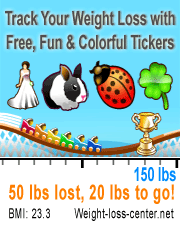My husband and I went in to our family doctor last week for our yearly physical. Everything checked out alright so we thought, but the test results of my husband’s blood test came back today and it turns out his total cholesterol level is 238, which is in the moderate risk category. This was a bit of an eye opener for him. He has been watching me diet from the sidelines and now he is finding himself in a position where he has to make changes in the way he eats and lives too. This is going to be interesting.
It’s funny that it seems I’m more concerned about his test result than he is. He just went off to work merrily this morning, meanwhile I have been scouring the internet for information about diet changes that lower cholesterol. It’s actually very interesting that many of the principles for losing weight are the same for lowering cholesterol levels. From what I can tell, many cases of high cholesterol can be improved just by making changes in your diet.

Adding more fish to your diet is one of the diet changes you can make to lower cholesterol levels.
The mere mention of the words ‘cholesterol levels’ at most times leave many people short of breath because of the health implications associated with it. Nevertheless, very few people can precisely describe how this term amounts to serious health risks. The liver makes all the cholesterol required by the body, but feeding on a cholesterol-rich diet like red meats, ice cream or eggs supplies individuals with excess cholesterol that increases health risks. The most common health implications associated with a buildup of cholesterol in the blood are stroke and heart attack.
As it turns out, not all cholesterol is bad for your health. There are two main types of cholesterol: high-density lipid (HDL) and low-density lipid (LDL). LDL cholesterol is the one that is considered to be healthy since it helps the body get rid of extra cholesterol. LDL’s mostly come from plants and white meats. On the other hand, HDL cholesterol normally comes from animals and mass processed products like red meats, junk foods and hydrogenated cooking oils. The HDL”s are the bad cholesterols because they are the ones that accumulate to dangerous levels. For more indepth information, please see Cholesterol Levels.
The most important elements to consider when understanding your own cholesterol levels is age, gender, genetics, tobacco use and body weight. When it comes to body weight, overweight men and women with high cholesterol have the greatest risk of heart attacks and strokes. As for age and gender, most women have lower cholesterol than men until they reach menopause. Following menopause, there is very little difference and women should begin testing their cholesterol levels from time to time. Genetics also plays a big role in high cholesterol. Some people are genetically prone to this condition and may require medications to help lower their cholesterol levels. Smoking can also exasperate health problems associated with high cholesterol levels.
Everyone wishing to live a long and healthy life should monitor their eating habits and lifestyle choices anytime their total cholesterol count is more than 200, since this implies that their exposure to cholesterol-related health conditions is borderline to high risk. At present, some of the suggested diet options that lower cholesterol include cutting down on high cholesterol foods or saturated fats, eating foods high in fiber, consuming low cholesterol foods and eating small portions of a balanced diet. In addition to this, regular exercise in combination with a low fat, sugar and salt free diet is encouraged to lower and maintain healthy cholesterol levels. In the end, diet and lifestyle changes really benefit a lot to lower one’s cholesterol level.
There are a number of foods that should be part of your diet to lower cholesterol. Here is a brief list of some of them:
- Oat cereal
- Cereals containing flaxseed or psyllium
- Whole grain cereals
- All types of fruits, especially currants, grapes, strawberries, blackberries, raspberries, citrus fruits, apples
- Pecan nuts, walnuts, olives, soy nuts
- Dried or canned beans, peas and lentils
- Corn, fresh, frozen or canned
- Soybean products
- Whole wheat bread
- All vegetables, especially onion, watercress, leeks, spinach, carrots, artichokes, avocado, broccoli, kale, brussels sprouts and cauliflower
- A variety of flavourings, herbs and spices, especially fresh garlic
- Lean meats and chicken
- Salmon, swordfish, tuna and trout
- Canola, olive oil and margarines made from these oils
There are also a number of foods you should avoid if you have high cholesterol. For more information about these foods, please see High Cholesterol Foods.





the number 1 thing we should do to
help with weight loss is set a goal and don’t forget to excercise.
Diet and excercise is the key to successful weight loss.
Another thing that it’s essential to do in decreasing ldl cholesterol naturally is to take food supplements. You cannot devalue the advantages that you simply get with a high quality dietary supplement. It is equally important with exercising and having a healthy diet. That is particularly good if you will take the natural ldl cholesterol lowering supplements.